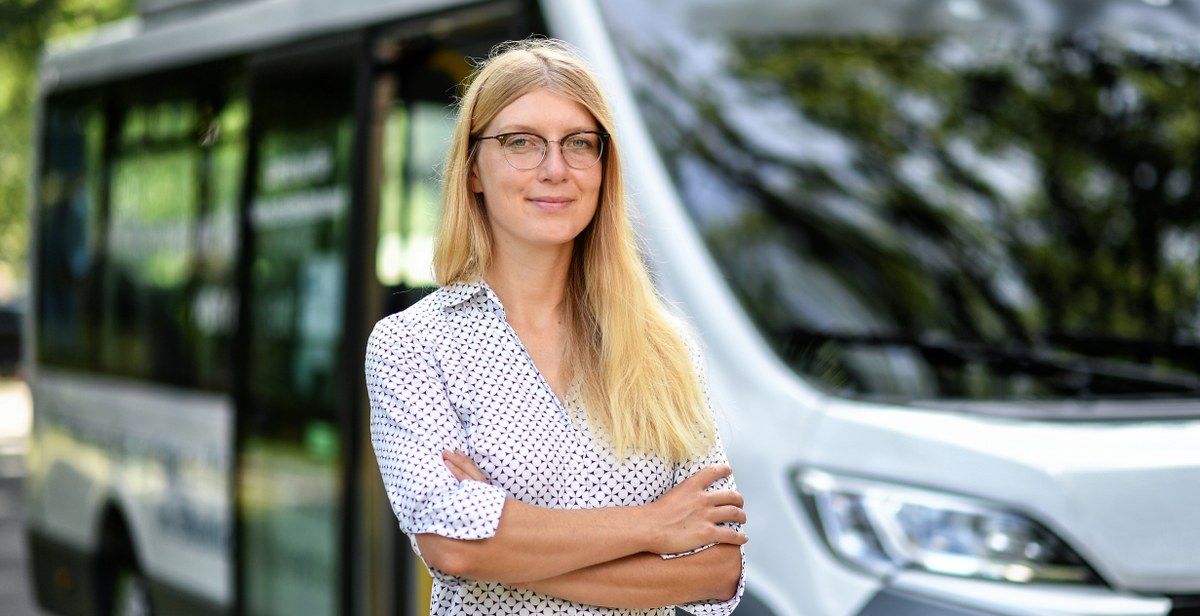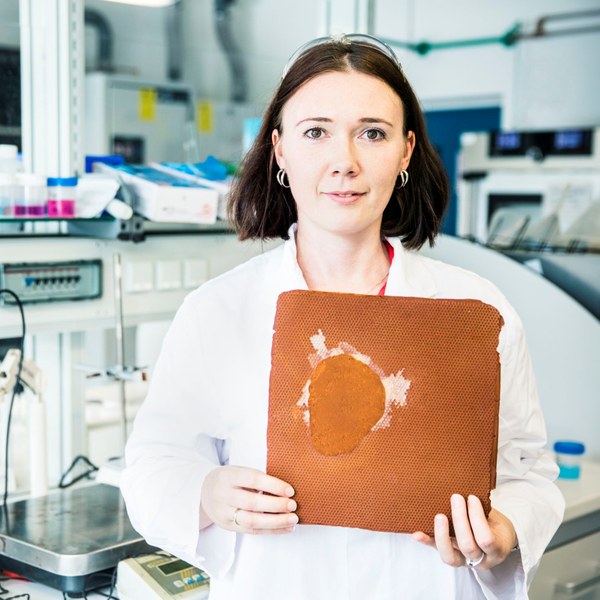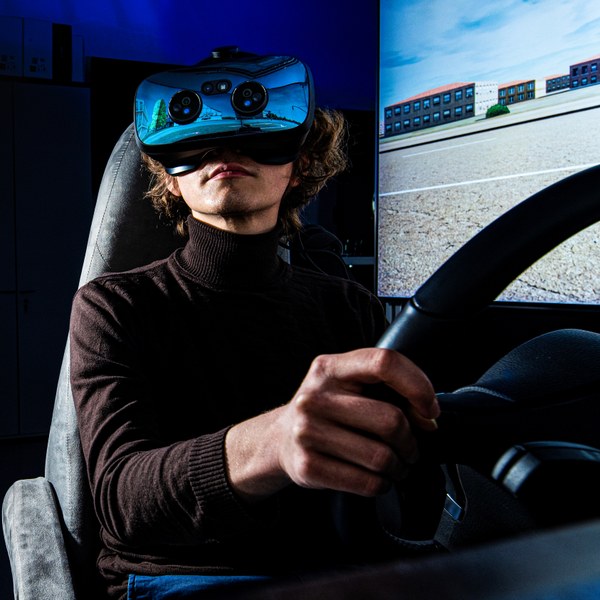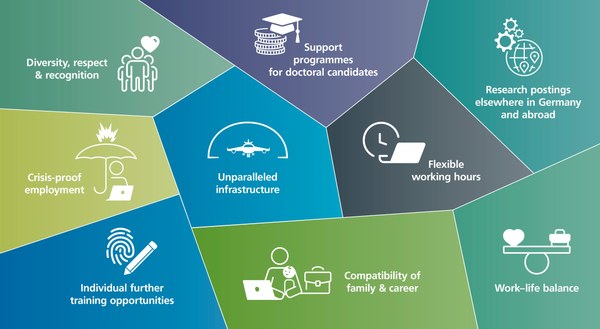Alexandra König
Field of study: Psychology
Now: Institute of Transportation Systems
Alexandra König studied psychology. She joined DLR in 2016 as a doctoral student and now works as a researcher in the Research Design and Assessment of Mobility Solutions department at the Institute of Transportation Systems in Braunschweig. Here, she tells us about her work.
Alexandra, what do you look forward to when coming to work in the morning?
Alexandra: Currently working from home, as per the measures implemented by DLR to protect its employees since mid-March, I still look forward to checking the calendar first thing in the morning. It always promises variety for the day. Team meetings, project meetings and discussions with students always alternate with periods of independent work. I really enjoy the diversity of tasks.
What are you researching or working on?
Alexandra: I am working on the design of new user-centred mobility systems in various projects. People are the focus of my research. In these projects, we apply different methods – such as interviews, online surveys, experiments or workshops – to determine the requirements of future users for new mobility systems.
„I’m working on the design of new user-centred mobility systems“
The areas of application are extensive. Rural mobility, mobility concepts for people with disabilities, and automated shuttle buses: these are all topics I work on in projects with partners, such as transport companies or other research institutes. My doctorate involved work on the concept of Mobility-on-Demand Systems, which offer users flexible, demand driven mobility.
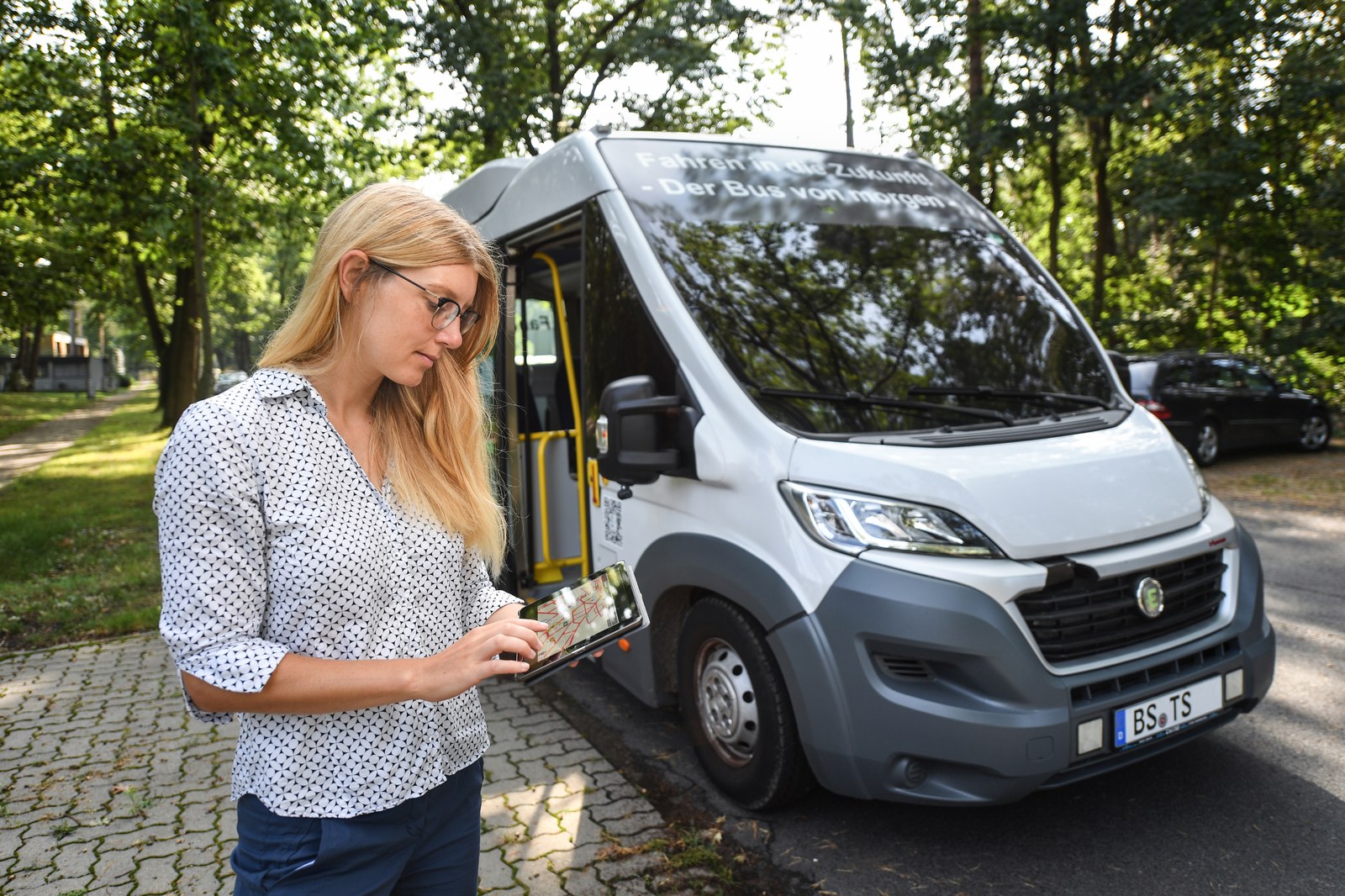
What does your typical working day involve?
Alexandra: There is no such thing as a typical working day. Every day is different. I’m currently working on five projects, so my daily tasks are quite diverse. We usually plan studies in an interdisciplinary project team to answer our research questions, collect and evaluate data, and publish the results in scientific journals or at conferences.
For the evaluation of user surveys, for example on the topic of automated shuttle buses, we mostly use the statistics software SPSS. However, we increasingly conduct qualitative research, such as interviews or workshops, to gain deeper insights into people's thoughts and attitudes.
Where and how is your work being used?
„In user-centred research in the transport sector there are so many interesting and extremely relevant questions for our society that need to be answered“
Alexandra: The great thing about our work is that it is frequently transferred into tangible products or services. The results of our research can actually be seen on the road at some point. However, a lot of research is needed initially to design a system that meets user requirements.
Another challenge here is to communicate a new mobility concept in an immersive way, that is, in a clear and comprehensible way. For this purpose, we developed our own Serious Game, a digital educational game that helps to convey the concept of a Mobility-on-Demand Shuttle in a playful way. We then used the Serious Game ‘B.u.S.’ during an evaluation study in a school.
What are the highlights of your work?
Alexandra: The highlights of my work are definitely those days when, after months of work on a project description, a new research project is approved, or an article is accepted for publication. We often spend several months working on a research project and are engaged in a lively dialogue with our research partners. Receiving the confirmation that the project will be funded is a wonderful feeling, because we know that the research topic is considered relevant and innovative.



What special skills can you make good use of in your job?
Alexandra: I think that my ability to quickly familiarise myself with new topics and to gain an overview helps me in my work. This is particularly important given the rapid transformation of the transport system and the diversity of our research topics.
Leave us a final thought.
Alexandra: Anyone who thinks that the research conducted at DLR is limited to the fields of aeronautics and space is mistaken. It is precisely in the field of user-centred research in the transport sector that so many interesting and extremely relevant questions for our society need to be answered to contribute to user-friendly, safe and sustainable mobility in the future.

